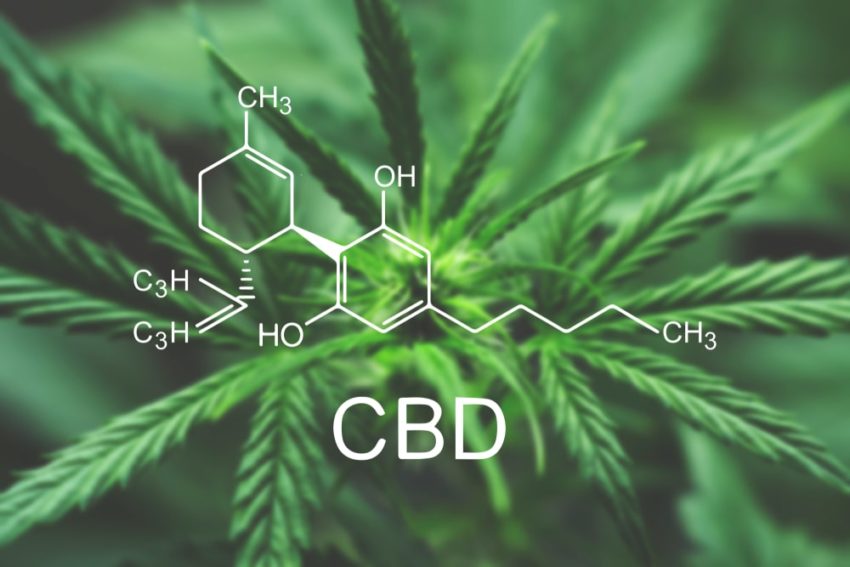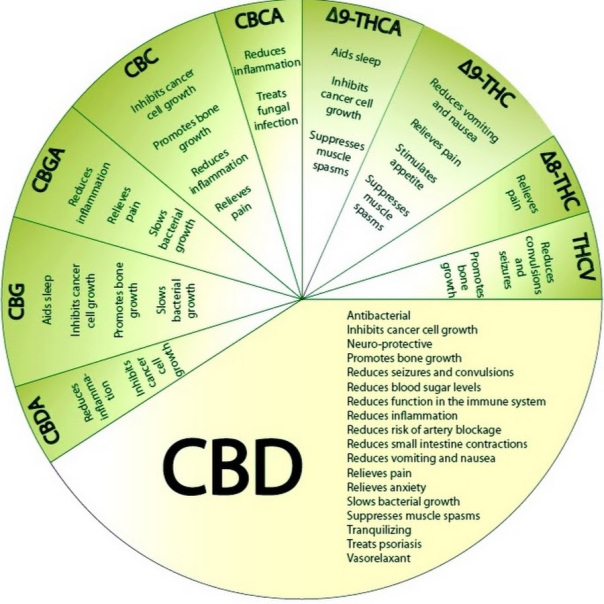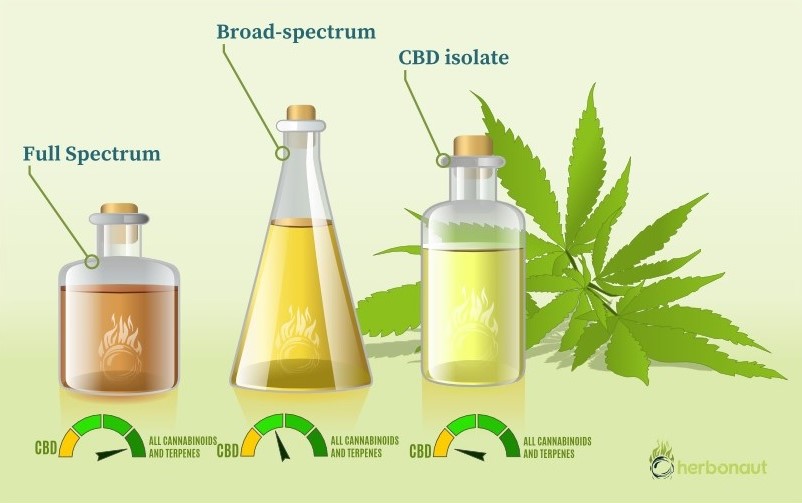Unleashing the power of CBD.
Dispelling the myths surrounding Cannabis Oil
Since becoming legally available globally in recent years, the popularity of CBD oil has grown exponentially. A cannabinoid derived from the hemp plant and cannabis, it has steadily made its way into all manner of health and wellness products, from tinctures to teas – and these days, you can even find it in food items and bathroom products, too.
CBD has not been on the market for long, but with the demand rising exponentially every year, it’s little wonder it has now gone mainstream, yet many myths surround this elusive product. Vamp magazine caught up with Dr Andrew Agius, to set the record straight once and for all.

What is CBD oil?
Cannabidiol (CBD) is a naturally occurring substance found in hemp and cannabis which has recently gained a lot of interest because of its various health benefits.
CBD is extracted from the hemp or cannabis plant and can come in various forms such as drops or oil, capsules, food products containing CBD known as edibles, topicals which can be applied directly onto the skin and extracts made specifically to be vaporized and inhaled. It is also available as the raw flower which can be vaporized or smoked. The most common form that CBD is usually found is as oil or drops.
CBD oil is an extract of CBD dissolved in oil. The CBD is extracted from the plant using alcohol or CO2. The active ingredient is diluted in an oil such as hemp seed oil, olive oil or MCT (medium-chain triglyceride) coconut oil. The percentage of the oil represents the dosage of active ingredient (CBD) per drop. A 5% CBD oil contains 500mg CBD per 10ml oil and delivers 2mg per drop. A 10% CBD oil contains 1000mg per 10ml oil and delivers 4mg per drop. A 15% CBD oil contains 1500mg CBD per 10ml oil and delivers 6mg CBD per drop.

Can anyone use it? Who shouldn’t?
Since CBD is non-intoxicating, there is no potential for abuse. It is safe for everyone except in pregnancy and breastfeeding. One should seek medical advice if taking any medications because of the possibility of drug interactions.
Do you need a prescription?
CBD products are legally available as food supplements or cosmetics throughout Europe as long as they contain <0.3% THC (tetrahydrocannabinol). In Malta, it is possible for patients to buy CBD products for their own personal use without a prescription since food supplements and cosmetics containing CBD are not classified as medicines and there are no CBD-only medicinal products available in pharmacies in Malta. It is recommended that patients who are using CBD for therapeutic purposes do so under the guidance of a medical professional because of drug interactions and possible side effects.
What are its key benefits?
CBD produces its effect on the body by interacting with the endocannabinoid system (ECS) and enhancing its function by boosting the levels of our naturally-occurring neurotransmitters. The ECS is an extensive system of receptors which was discovered around 1990 and is responsible for keeping the body functioning in its optimal state. It is now known to be the most important physiological system in our body.
CBD helps to correct minor imbalances in the body and has been shown to help relieve anxiety and chronic pain. It can also help reduce inflammation, boost the immune system and protect against neurodegenerative disorders and heart disease. CBD also helps reduce the incidence of type 2 diabetes and protects against cancer. CBD can be prescribed as a medicine for treatment-resistant epilepsy and psychosis.
Is it addictive?
CBD was declared safe and non-addictive by the World Health Organisation (WHO) on 14th December 2017. WHO also stated that CBD should not be controlled and it should be available worldwide since it can be potentially helpful to relieve symptoms in a wide range of conditions.

Does it get you high?
Since CBD does not contain THC, it does not produce euphoria or intoxication. Therefore, it does not get you high. In fact, when combined with THC, CBD helps to reduce the high produced by THC and attenuates other possible THC side effects such as anxiety and paranoia.
Does it show up in a drugs test?
The upper limit of THC allowed by law in the European Union is 0.3%. Most CBD products in Europe contain <0.3% THC or less. If one consumes a product with zero % THC, this should result in a negative drugs test for THC. However, since CBD products are not regulated, some may contain more THC than what is declared on the bottle and even 0.3% THC may occasionally give a positive drugs test result.
Does hemp oil contain CBD?
Hemp oil is a term sometimes used interchangeably with CBD oil. Some hemp oil may contain CBD and some may not. Since the CBD market is still unregulated, products purchased online or from unreliable sources may contain less CBD than is declared on the bottle.
It is always advisable to buy a CBD product that is produced under GMP (Good Manufacturing Practice) and that has a certificate of analysis declaring the exact contents and ensuring that it is safe for human consumption.
It is important to note that hemp oil is different from hemp seed oil which is extracted from hemp seeds and does not contain any CBD. Hemp seed oil is often used in cooking.
Is it safe to use? Are there any side effects?
CBD is very safe and well-tolerated. It is not intoxicating and does not cause any impairment. Users can drive and operate machinery safely while under the effect of CBD. Most users do not report any side effects. The commonest unwanted effects are an unpleasant taste with some full-spectrum oils and mild diarrhoea when many drops are ingested at once. CBD may interact with pharmaceutical medication and can enhance side effects from the medication.
CBD is very safe in high doses and human trials have been done with doses exceeding 1000mg daily – that is a whole 10ml bottle of 10% CBD oil!
Which product should I use?
When choosing a CBD oil, always ensure that the brand you choose is reputable and that it has been recommended to you. Some brands may produce cheaper products, and these may sometimes be inferior in quality and contain less CBD than is declared on the bottle. Some CBD products bought on the internet contain no CBD at all!
There are various types of CBD oil products available, and these differ depending on the concentration of CBD in the product, the formula of minor cannabinoids and terpenes, the method of extraction and the carrier oil used to deliver the active ingredients.
Full-spectrum CBD oils are usually more effective because of the synergistic effect (known as the entourage effect) obtained from all the therapeutic substances derived from the plant. Some CBD products also contain other legal non-intoxicating cannabinoids such as cannabigerol (CBG), cannabichromene (CBC) and cannabinol (CBN) which add to the therapeutic effect. CBD isolates only contain CBD without minor cannabinoids and terpenes and the therapeutic effect is limited.

If you are starting CBD as a food supplement and you do not have any health issues you wish to address, it is advisable to start with 2.5% or 5% drops. If you have any symptoms which you would like to address, it is advisable to start with a 10% oil and increase to 15% or higher if necessary. It is highly recommended to seek medical advice before starting CBD oil to treat any symptoms which you may be experiencing.
Dr Andrew Agius is the founder and medical director of The Pain Clinic, an integrative medical centre for the interdisciplinary management of chronic pain. www.painclinic.com.mt









